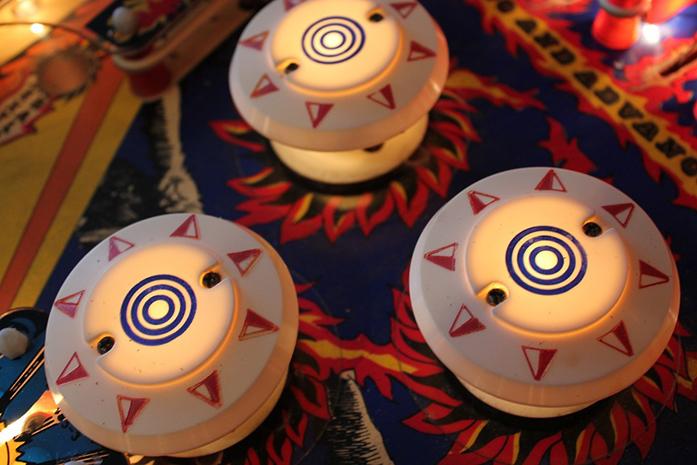By Lily Goodman
Most people play pinball only in passing, often at an arcade. Most people don’t think — maybe don’t even know — that pinball is actually just as competitive a game for some as, for instance, basketball.
With a single screening Saturday at FilmScene, 118 E. College St., the first feature-length documentary by filmmakers Nathan Drillot and Jeff Petry, Wizard Mode, takes its viewers into the world of competitive pinball and, more specifically, into the life of one of its top-ranking players, Robert Gagno.
Already an interesting concept , what makes Wizard Mode especially captivating is 28-year-old Gagno, who, on the autism spectrum, finds mastering life outside the game much more challenging than the game itself. Like the majority of people on the spectrum, he has a difficult time socializing and picking up on the social cues that come more naturally to someone living without autism.
Constantly worrying the developmental disorder will define all of his interactions with those around him, he states several times throughout the film that he just wants people to know he can be “like any other good person out there.” That he doesn’t want “to just be autism forever.”
Andrew Sherburne, a FilmScene associate director, is excited about screening the documentary because of its dual effect on viewers.
“One of the core elements of our mission [at FilmScene] is to showcase film as a tool for engagement,” he said. “Wizard Mode is a prime example of a film that is both compelling cinema and a conversation starter.”
Kelly Pelzel, a clinical psychologist at the University of Iowa Stead Family Children’s Hospital and a member of the foundation to which part of the proceeds of Saturday’s screening will benefit, agreed with Sherburne. She also supported the documentary’s portrayal of the disorder.
“The film thoughtfully reveals the unique strengths and challenges [of living with autism], both in the world of competitive pinball and in daily life,” she said.
It’s certainly clear that Gagno has received and continues to receive an outpouring of support from those around him, particularly from his parents. Even after finding out their son’s diagnosis, they refused to accept that their son’s future was limited by having autism, and once Gagno found his passion in pinball, they supported him as he practiced nonstop and honed his extraordinary skill for playing the game, recognizing the sense of purpose it provided.
At times, Gagno’s struggle can be almost heartbreaking to watch, as he so desperately just wants to live a normal and fulfilling life. But between the love he receives from those close to him to the massive steps he takes into adulthood by learning how to drive and getting his first job, it’s not possible to actually feel any sort of pity for him.
Toward the end of the film and after taking first place at Pinburgh, the largest pinball tournament in the world, Gagno goes on to speak in front of a large audience about what it’s like living with autism and how pinball has helped him realize he really isn’t “autism forever.” In one of many especially poignant scenes in Wizard Mode, he looks into the camera backstage before going on.
“I feel confident. I can pull this off,” he says. “You just watch. I can do this.”
And then, of course, he does.






